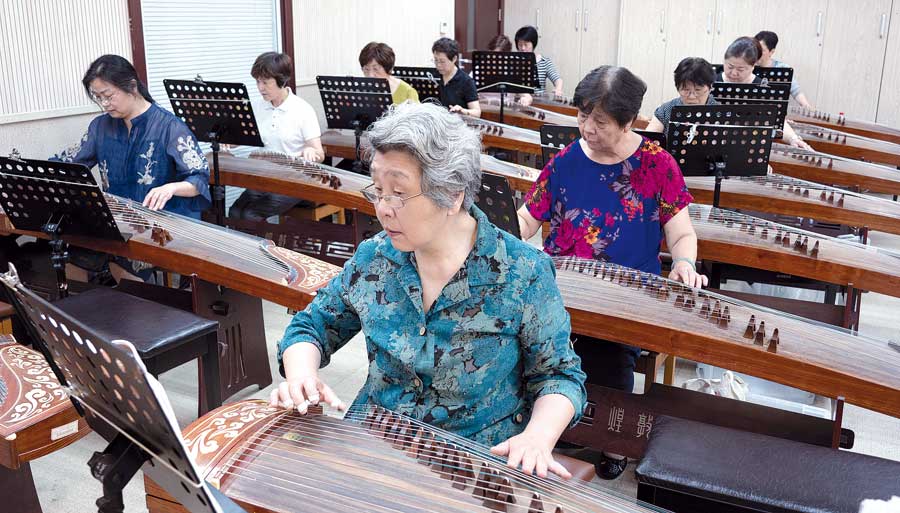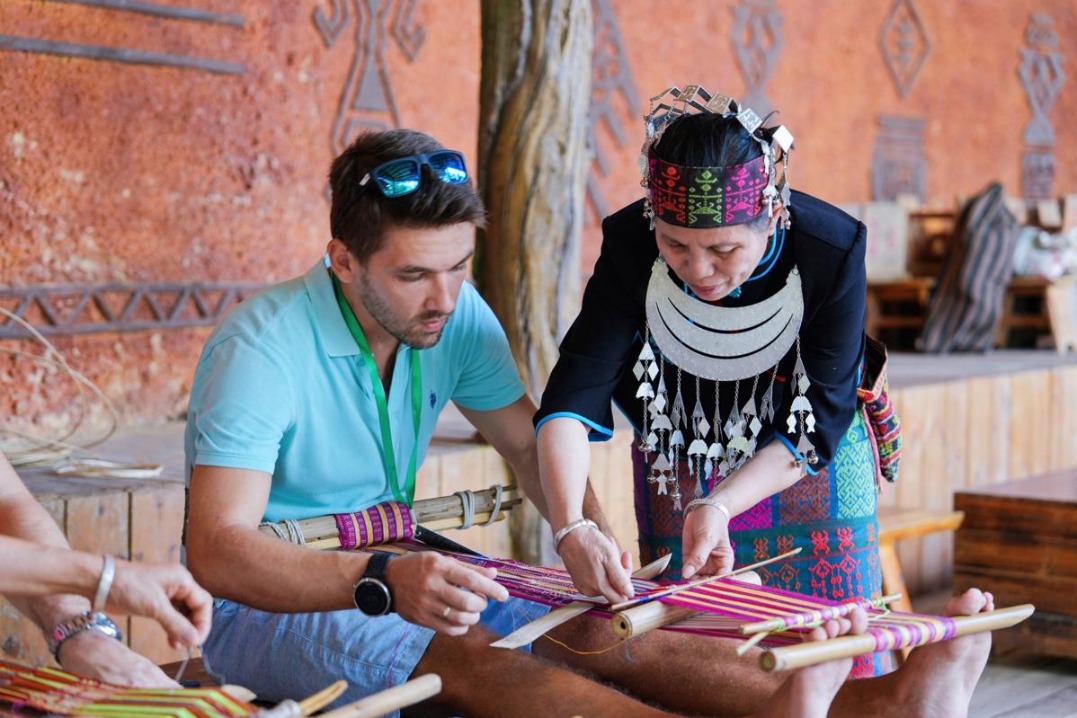Beijing's move a concrete step to provide better eldercare


The Beijing municipal government subsidized nine multi-function elder-friendly model residences recently, so businesses involved in the "silver economy" and government departments could draw inspiration from them to provide quality services for the elderly people. The renovated residences are located in seven Beijing districts and easily accessible by senior citizens.
The model residences are part of the Beijing municipal government's efforts to help fulfill the central government's pledge to develop a comprehensive eldercare system by 2029. The model residences are said to be equipped with air purification devices, and equipment to monitor residents' health and send emergency alerts to local government departments. Furniture and other facilities are designed to serve the needs of the elderly on wheelchair while a team of doctors, nurses, cleaners are on call around the clock.
Taking good care of the elderly people is becoming a tough challenge for governments at different levels. By the end of last year, China had more than 310 million people, or 22 percent of the country's population, aged 60 or above.
Having anticipated the rapid increase in the number of elderly people, many businesses began investing heavily in building eldercare centers — some of which are so luxurious that one needs a few million yuan to buy a membership. Many of the investments have failed, with quite a few eldercare centers closing down, according to media reports, either because they were too expensive for most people to afford or too poorly equipped to meet the needs of the elderly people.
According to Chinese tradition, children and grandchildren are expected to take care of the elderly in the family. In fact, a survey showed that 90 percent of the elderly people prefer to live in their own home and be taken care of by their children, while 7 percent said they could live in a daycare center close to their home. Only 3 percent said they were willing to spend their sunset years in eldercare centers.
Home care is not only the choice of most of the elderly people but also the only choice for China. Twenty-two percent of China's population is roughly equal to the entire population of the United States and it is unthinkable to put more than 300 million elderly people in eldercare centers, because the financial and operational burden it entails is not possible for any country to shoulder.
Accordingly, governments at different levels have begun developing a foolproof home care system. Given their different financial capacities, governments in different regions are providing the elderly people with services of different values. In Sanya, Hainan province, I saw elderly people paying just 1 yuan (14 US cents) for lunch in a neighborhood canteen. They are also offered annual medical checkups. In Baoding, Hebei province, volunteers and officials from local residential committees pay regular visits to elderly people living alone in order to attend to the latter's needs, if any.
In better-developed regions such as Beijing, elevators are being installed in five- and six-story apartment buildings to make it easier for the elderly people to reach the upper floors. Also, handrails inside apartments and emergency call buttons on the bedside of bedridden people are being installed free of charge.
Besides, elderly people can enjoy free bus rides across the country. They also get free entry or discounts on tickets to many museums and parks. I sometimes feel a little embarrassed when taking a free bus ride. Once, while taking a free bus ride to a park, I realized all the other passengers were elderly people like me. Isn't it a shame that our young people are working while we are enjoying free services?
I want to visit one or two model residences in Beijing. In my view, the model residences should not be luxurious. They should be elderly-friendly in design, and provide the necessary services including providing food, shopping and house cleaning services, as well as medical help on call. And it would be so much better if groups of people having similar interests can be brought together to play chess or cards.

The author is former deputy editor-in-chief of China Daily.
kangbing@chinadaily.com.cn


































